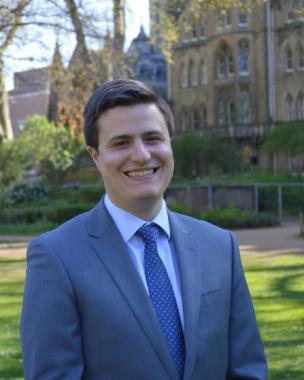TOPIC: Are Two Components Better than One? Investigation of Multi-component Materials for Catalysis and Environmental Remediation
SPEAKER: Dr. Michael Nigra, Assistant Professor of Chemical Engineering, University of Utah
DATE: Tuesday, May 18th, 2021
TIME: 6:00 Science Fair Winner Spotlight
6:10 Career Discussion
6:25 Presentation and Q&A
LOCATION: Online Zoom Meeting
COST: Free, Registration required below
ABSTRACT: Natural systems often use multiple sites or functionalities to perform complex tasks with remarkable rates and selectivities. Enzymes serve as excellent examples of utilizing multiple functionalities where their active sites are located in environments in which there are control of electrostatic interactions, precise placement of chemical functional groups, confinement of the active site, and control of hydrophobicity/hydrophilicity.
In this presentation, three different systems each with two major components essential to the function will be presented. The first system, uses bimetallic gold alloy nanoparticles to demonstrate a synergy between the gold and the other metal such as to tune the properties and the catalytic performance of these materials in CO oxidation and methane oxidation. We observe distinct catalytic differences when we pair FCC Au with non-FCC metals. The second example demonstrates the synthesis, characterization, and catalytic performance of hybrid enzyme-bound nanoparticle systems. In this work, gold is paired with an oxidase enzyme to perform oxidation reactions in series using both the enzyme and the gold nanoparticles as active catalysts, analogous to substrate channeling in biological systems. The third system will demonstrate the use of a hybrid organoclay-gold nanoparticle material that will be applied to the removal of methyl mercury from aqueous systems.
SPEAKER BIO: Dr. Michael Nigra is an Assistant Professor of Chemical Engineering at the University of Utah. He received his bachelor’s degrees in Chemical Engineering and Biomedical Engineering from Carnegie Mellon University in Pittsburgh in 2007. He then obtained his Ph.D. from University of California, Berkeley in 2013 under the direction of Professor Alex Katz. From 2014-2016, he was a senior research associate in the Department of Chemical Engineering and the Centre for Nature Inspired Engineering at University College London. At the University of Utah, he leads a multidisciplinary research group that designs important nanoscale interfaces for applications in catalysis, carbon management, environmental engineering, and medicine. Dr. Nigra’s important teaching contributions have been recognized by his department and college. In 2020, he was the recipient of the College of Engineering’s Outstanding Teacher Award, the highest teaching award in the College of Engineering.
CLICK LINK BELOW TO REGISTER:
- Log in to post comments
